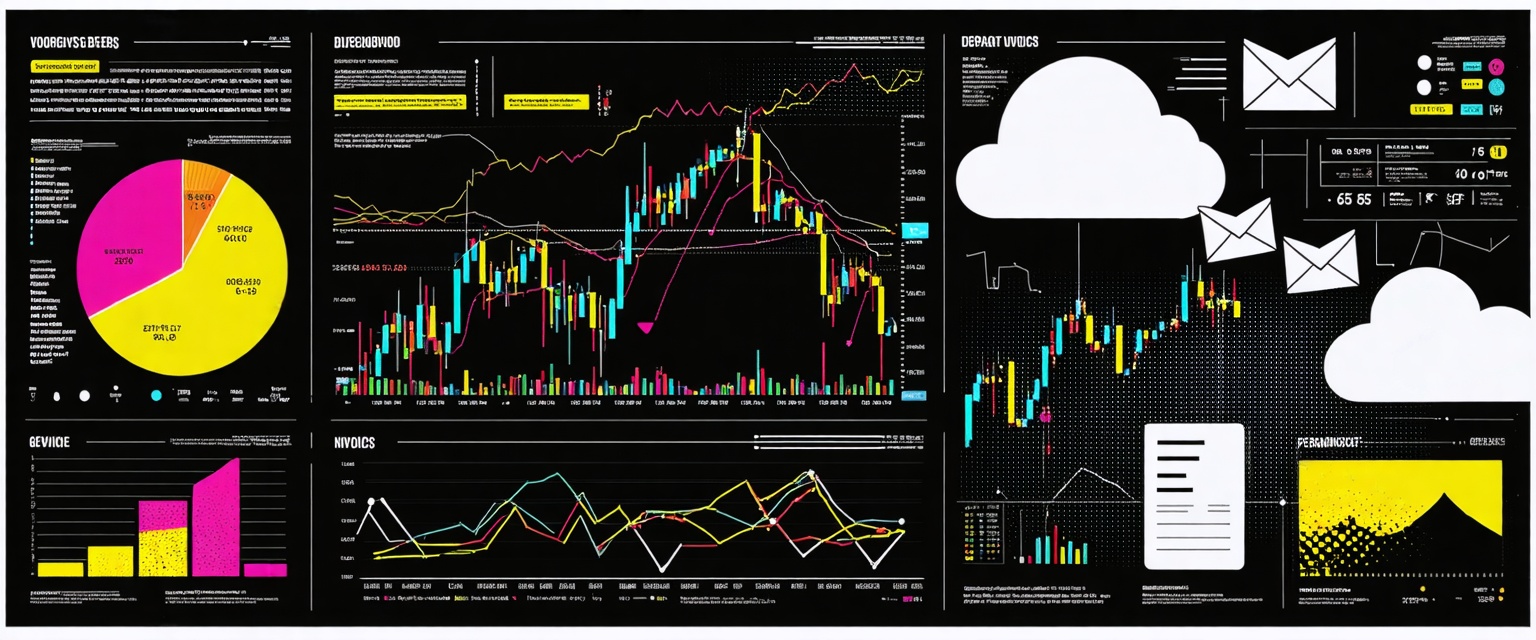Discover how AI agents manage client interactions in construction, providing personalized recommendations for seamless communication and enhanced project outcomes.
Struggling with fragmented communications while keeping clients updated on construction projects? With teams scattered and data siloed, personalized client recommendations become challenging, impacting project success and your bottom line. AI agents now transform client interactions by offering tailored recommendations.
The construction industry is rapidly adopting Agentic AI — intelligent systems that manage tasks, make decisions, and learn from every interaction. Discover how these advances, along with Datagrid's data connectors, overcome communication challenges and enhance client experiences.
How AI Agents Manage Client Interactions in Construction and Provide Personalized Recommendations
The construction industry stands at the threshold of a client service revolution. As AI capabilities expand rapidly, their impact on client relationships has become increasingly significant.
AI agents are fundamentally changing how construction teams interact with clients by facilitating seamless real-time communication. On large-scale projects where teams operate across multiple locations, AI-capable platforms provide instantaneous updates that minimize misunderstandings and keep clients informed. These systems can:
- Track project achievements in real-time
- Revise deadlines based on current progress
- Notify relevant stakeholders about changes promptly
- Ensure all parties have access to the most current information
This increased transparency helps clients feel more connected to their projects and reduces frustration caused by communication delays or information gaps.
Where traditional approaches to client recommendations were often based on limited data or generic industry standards, AI agents now function as digital colleagues that provide highly tailored suggestions. These systems analyze vast amounts of project data to deliver recommendations that feel custom-made for each client's unique needs.
Rather than replacing human professionals, AI in construction serves as an intelligent assistant that augments human capabilities. When dealing with clients, this partnership between human intuition and AI processing power creates a superior experience by:
- Allowing human team members to focus on relationship-building while AI handles data analysis
- Providing data-backed recommendations that construction professionals can explain and contextualize
- Creating more accurate timelines and cost projections that build client trust
- Identifying potential issues before they become client problems
As Brad Buckles, VP of Technology and Innovation at Charles Perry Partners, Inc. notes: "As everyone is saying, AI is here, and AI is here to stay. In 2024 we will see a tremendous amount of investments, new ideas, and trends in the industry. There is so much potential to be gained with utilizing AI to solve issues."
Traditional Challenges in Construction Client Interactions
Construction projects involve numerous stakeholders, substantial resources, and significant timelines. Managing client relationships throughout this process presents unique challenges that directly impact project success.
Fragmented Communication
One of the most persistent challenges in client interactions is fragmented communication. In traditional construction practices, project teams often operate in isolation, using separate software and workflows that lead to disjointed client communication.
For example, design teams might conduct internal reviews of project Requests for Information (RFIs) without involving contractors or clients, overlooking crucial considerations and creating information silos.
This fragmentation means clients often receive inconsistent updates from different team members, leading to confusion and frustration. When information is scattered across various documents and stakeholders, accessing critical data becomes difficult, hindering effective communication and decision-making with clients.
Lack of Transparency
Traditional construction methods frequently suffer from inadequate transparency in client relationships. Information often becomes fragmented across various documents and stakeholders, making it difficult for clients to access critical data about their projects. This opacity can erode trust and lead to misaligned expectations.
When clients aren't regularly informed about project progress, budget updates, or potential issues, they may become apprehensive about the project's direction.
This lack of transparency frequently results in strained relationships, especially when unexpected changes or delays arise without proper communication.
Inefficient Response to Change Requests
Change orders and client modification requests are common in construction projects. Yet traditional methods often lack efficient systems to process, evaluate, and implement these changes. Manual handling of change requests typically involves multiple approval layers and paper-based documentation, resulting in delayed responses and frustrated clients.
When clients request modifications to ongoing projects, the slow turnaround time for assessments and approvals can significantly impact project timelines and client satisfaction.
The inability to quickly analyze the implications of change requests on budget, schedule, and resources leaves both contractors and clients in uncertain positions.
These traditional challenges in client management create friction throughout the construction process, affecting not just client satisfaction but also project efficiency and profitability.
Role of AI Agents in Facilitating Client Interactions
AI agents are transforming how construction companies interact with their clients by addressing long-standing challenges that have hindered effective communication and collaboration. These digital colleagues enhance human capabilities by managing repetitive tasks, analyzing data, and providing insights, allowing construction professionals to focus on strategic decisions and creative problem-solving with their clients.
Real-time Collaboration
The interaction between humans and AI agents is increasingly seamless, creating new opportunities for real-time collaboration with clients. While a construction manager reviews project plans with a client, an AI agent can simultaneously analyze schedules, flag potential conflicts, and suggest optimizations—similar to having an always-alert assistant in client meetings.
Virtual and augmented reality (VR/AR) technologies, enhanced by AI, further facilitate client collaboration by allowing team members and stakeholders to visualize project plans remotely. This shared perspective encourages feedback from anywhere in the world, which is particularly beneficial for complex projects where clear communication helps avert costly misunderstandings and delays with clients.
Adaptive Learning Capabilities
A key feature of AI agents is their ability to learn as they engage with human teams and clients. They can adapt based on interactions and feedback, becoming more attuned to specific project needs and client preferences.
For instance, an AI agent can learn which types of safety alerts are most relevant for a particular construction site and client, improving the relevance of communications.
This adaptability is facilitated by continuous learning mechanisms that enable the AI to refine its strategies and enhance its performance over time. Feedback loops are integral to the continuous improvement of agentic AI. These loops involve monitoring system performance, collecting user feedback, and making necessary adjustments.
In client interactions, this translates to increasingly personalized experiences as the AI system learns from each interaction, remembering client preferences and anticipating needs before they're expressed.
AI-Powered Communication Tools
AI-driven communication tools that utilize natural language processing (NLP) facilitate seamless collaboration with clients by translating documents, automating meeting notes through AI meeting notes automation, and generating reports. For global construction projects, this capability is vital in fostering clear communication between stakeholders from varied linguistic and cultural backgrounds.
According to Mark Jason Villanueva, Corporate BIM Manager at Newcon Builders, "AI will definitely take the construction industry in 2024. AI will be the assistant project manager that predicts problems, offers real-time insights, decision support, and keeps the budgets on track," all of which directly enhance client interactions and satisfaction.
Platforms that offer AI integration with Slack enable teams to streamline their communication workflows even further.
Several notable AI-powered tools are already transforming client interactions in construction:
- OpenSpace: Utilizes 360-degree cameras and AI to create digital twins of construction sites, enabling clients to virtually walk through their projects remotely and track progress in real-time.
- Procore: An integrated construction management platform that uses AI to streamline workflows and improve collaboration between construction teams and clients.
- ALICE Technologies: Leverages AI to optimize project planning and enable scenario exploration with clients, helping them visualize different project approaches.
AI Personalization in Client Recommendations
In the competitive landscape of modern construction, delivering a personalized experience has become a key differentiator. AI-powered personalization systems are transforming how we recommend solutions and products to clients, creating experiences that feel tailor-made for each individual.
AI personalization operates like having millions of hyper-intelligent personal shoppers working around the clock to find the perfect match for each client. These sophisticated systems analyze client behavior, preferences, and contextual data to suggest products, services, or solutions that are most likely to resonate with them.
The power lies in their ability to process vast amounts of data at impressive speeds, considering not just recent interactions but also browsing history, purchase patterns, demographic information, and subtle behavioral cues.
The process follows a well-defined workflow:
- Perception and data collection: AI systems gather data from various sources including client interactions, transaction histories, and even social media to understand the context of client needs.
- Decision making: Using sophisticated machine learning models, these systems analyze collected data to identify patterns and make informed recommendations based on previous interactions and present context.
- Action execution: After determining the optimal recommendation, AI executes the required action, whether it's suggesting solutions, processing requests, or escalating complex issues to human consultants.
- Learning and adaptation: The AI continually learns from each interaction, refining its algorithms to improve accuracy and effectiveness with every client engagement.
Implementing AI personalization in your client recommendation strategy offers numerous advantages:
Enhanced client satisfaction: By providing quick, accurate, and personalized responses, AI systems significantly improve client satisfaction scores. These systems learn over time, ensuring continuous improvement in the quality of recommendations.
Improved project accuracy: AI's ability to process and analyze client data leads to recommendations that feel remarkably precise, resulting in projects that better align with client expectations and needs.
24/7 availability: AI recommendation systems are available around the clock, ensuring that client inquiries are addressed promptly regardless of time zones or business hours, leading to improved client loyalty.
Proactive service: Rather than waiting for clients to express needs, AI can anticipate client behavior and requirements based on past interactions, allowing businesses to offer proactive solutions and recommendations that feel almost prescient.
Data-driven insights: These systems generate valuable data on client interactions, preferences, and behaviors, enabling businesses to gain insights into client needs and trends for continuous service improvement.
The effectiveness of AI personalization stems from its ability to create an emotional connection through interactions that resonate with clients on a personal level, fostering familiarity, trust, and loyalty. This approach helps build relationships that drive brand loyalty and advocacy, turning satisfied clients into brand ambassadors.
How Agentic AI Simplifies Construction Task Automation
Managing complex construction projects requires juggling countless tasks, documents, and communications across multiple systems. This is where Agentic AI comes in to transform your workflow by boosting task automation. Rather than simply providing static tools, Agentic AI works autonomously on your behalf, making decisions and adapting to changing project conditions.
Understanding Agentic AI for Construction
Agentic AI goes beyond traditional automation by incorporating three key characteristics:
- Autonomy: These systems initiate and execute tasks without constant oversight, managing complex, multi-step processes independently.
- Reasoning: Advanced decision-making capabilities allow the AI to weigh trade-offs, make contextual judgments, and set strategic actions.
- Adaptability: The AI adjusts goals and plans based on new information and changing conditions—crucial in the dynamic construction environment.
By leveraging these capabilities, Datagrid's platform transforms how construction projects are managed and executed.
Automating Documentation and Administrative Tasks
In construction, documentation can consume hours of valuable time. Datagrid's AI agents help solve this by automating document processing workflows.
For example, AI agents can:
- Analyze incoming RFIs, submittals, and change orders
- Extract critical information and route documents to appropriate team members
- Cross-reference specifications against historical data
- Perform contract comparison automation to identify discrepancies and risks early in the process
- Flag potential issues for your review
- Monitor permit status updates across multiple jurisdictions
This dramatically speeds up review cycles and keeps projects moving forward while ensuring accuracy and consistency.
Connecting Critical Construction Systems
The need for seamless system integration has never been greater. Datagrid's platform connects your core construction software like Procore, PlanGrid, or Autodesk BIM 360 with popular project management tools like Microsoft Project and financial systems like Sage 300.
Rather than requiring manual transfers between systems, AI agents automatically synchronize data across platforms, generate real-time schedule updates through AI-powered construction scheduling, track costs against budgets, monitor resource allocation, and enable automated progress tracking across systems.
This integration eliminates data silos, reduces manual entry errors, and provides comprehensive project visibility from a single interface.
Enhancing Field Operations and Safety
Datagrid's mobile solution extends these capabilities to the field, allowing teams to log daily work reports, safety inspections, and quality checks directly from job sites. AI agents can then analyze this data to manage client interactions in construction effectively, providing personalized recommendations that enhance safety and efficiency.
AI agents can monitor safety compliance by tracking incident reports, equipment certifications, and worker qualifications, illustrating how AI enhances construction safety. They can also automate safety compliance audits, alerting managers to potential compliance issues before they become problems. They track actual progress against projected timelines, identify potential delays before they impact the critical path, and route important updates to relevant team members via integrated communication platforms.
Similar to how Built Robotics has developed autonomous equipment for physical construction tasks, Datagrid's AI agents autonomously handle the digital aspects of your projects, freeing your team to focus on high-value activities that require human expertise and client relationships.
Simplify Client Interactions in Construction with Agentic AI
Managing clear and efficient client communications can make the difference between project success and costly delays. Datagrid's AI-powered platform transforms how construction professionals handle client interactions through intelligent automation and real-time insights.
Datagrid provides seamless integration across all major construction platforms including Procore, PlanGrid, and BIM 360, allowing you to maintain a single source of truth for all project data. The platform leverages over 100 pre-built connectors to both structured and unstructured data sources, ensuring you can access critical information whenever needed.
With Datagrid, you can automate responses to Requests for Information (RFIs) and generate comprehensive daily reports that highlight potential risks.
Transform your client interactions and project management efficiency with Datagrid's AI-powered solutions, designed specifically for the unique challenges of the construction industry.













